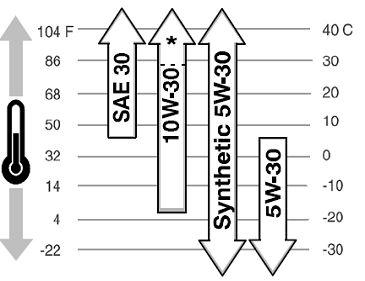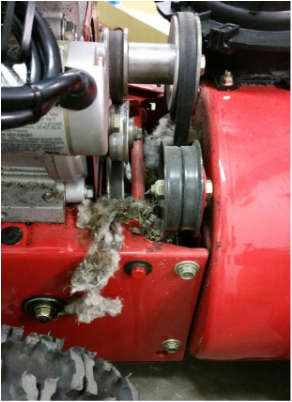Some question the value of outdoor power equipment preventative maintenance. The reasoning might be, “I’ll just have it repaired when it breaks”. The fact is however, that maintenance, is vital to the longevity of your equipment and can save you a lot of time, money and frustration in the long run.
Maintenance vs. Repair
Outdoor power equipment never seems to break down at a convenient time. In fact, it usually happens just when you need it the most: your snow thrower won’t start the morning after that big storm and you need to get to work, your lawn mower is broken and you have your child’s graduation party to prep for, etc. Finding someone to fix it for you in an emergency situation can be difficult, frustrating and costly.
On the other hand preventive maintenance can be planned, budgeted and controlled. It can reduce your everyday stress. It performs maintenance that you would have to do anyway, such as yearly oil change, spark plug service, filter services, etc. And it often identifies problems that could result in much more expensive repairs and impact the life of your machine.
In a routine maintenance call, a trained technician can spot those things that might need replacing soon. At that point, you are in control: you can choose to replace them or have them replaced before they break. You’ll save in the long run and won’t have to worry about your essential equipment breaking at the wrong time.
Maintenance Saves Money
Outdoor power equipment, is expensive. It’s expensive to purchase, expensive to repair, and eventually expensive to replace. Proper maintenance can help save money. Here's one example of how that works:
Equipment that has not been properly maintained becomes less efficient. For lawn equipment, this often means the equipment consumes more energy than it should, and extra load is placed on the engine which can result in premature failure. Or a rodent nesting inside your engine can cause the machine to overheat and perform poorly or even fail. Proper maintenance identifies these issues and keeps machinery running efficiently, saving you money in the long run.
Without question, routine maintenance should be a priority for all outdoor power equipment owners. Mobile Small Engine Service, LLC offers routine maintenance service you can depend on. Call us today for your equipment maintenance needs!
Maintenance vs. Repair
Outdoor power equipment never seems to break down at a convenient time. In fact, it usually happens just when you need it the most: your snow thrower won’t start the morning after that big storm and you need to get to work, your lawn mower is broken and you have your child’s graduation party to prep for, etc. Finding someone to fix it for you in an emergency situation can be difficult, frustrating and costly.
On the other hand preventive maintenance can be planned, budgeted and controlled. It can reduce your everyday stress. It performs maintenance that you would have to do anyway, such as yearly oil change, spark plug service, filter services, etc. And it often identifies problems that could result in much more expensive repairs and impact the life of your machine.
In a routine maintenance call, a trained technician can spot those things that might need replacing soon. At that point, you are in control: you can choose to replace them or have them replaced before they break. You’ll save in the long run and won’t have to worry about your essential equipment breaking at the wrong time.
Maintenance Saves Money
Outdoor power equipment, is expensive. It’s expensive to purchase, expensive to repair, and eventually expensive to replace. Proper maintenance can help save money. Here's one example of how that works:
Equipment that has not been properly maintained becomes less efficient. For lawn equipment, this often means the equipment consumes more energy than it should, and extra load is placed on the engine which can result in premature failure. Or a rodent nesting inside your engine can cause the machine to overheat and perform poorly or even fail. Proper maintenance identifies these issues and keeps machinery running efficiently, saving you money in the long run.
Without question, routine maintenance should be a priority for all outdoor power equipment owners. Mobile Small Engine Service, LLC offers routine maintenance service you can depend on. Call us today for your equipment maintenance needs!


 RSS Feed
RSS Feed